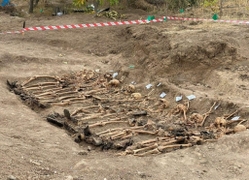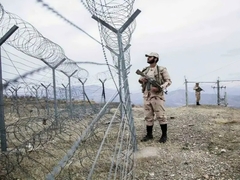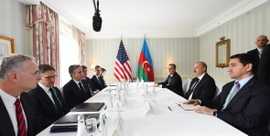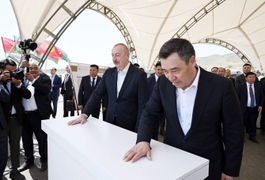Military and civilian officials appear concerned about the outcome of the Kurdish referendum held in Iraq on September 25.
“Iran and Turkey have common and similar positions in this regard, and we emphasized on the unity of the Iraqi people and disagree with the referendum on Iraqi Kurdistan,” said Chief of Staff of the Iranian Armed Forces Major General Bagheri at a press conference following a meeting he had with Turkey's Military Chief of Staff Hulusi Akar on October 2, according to the Iranian Student’s News Agency (ISNA).
The Kurdistan Regional Government (KRG) held a non-binding referendum last week, in which nearly 93 percent of voters backed the referendum, voting in favor of seceding from Iraq and forming a sovereign country.
The vote was strongly opposed by the central government in Baghdad, Iran, Turkey and other countries including the United States. Officials and analysts fear the vote could lead to further instability in the Middle East, a region already ravaged with wars in places like Syria and Yemen.
Leaders in Tehran and Ankara were staunchly opposed to the referendum, given Iran and Turkey’s large Kurdish minorities. Estimates put the total number of Kurds in Iran between 6.7 million and eight million, out of a total population of about 83 million.
Turkey also has sizeable Kurdish population –14 million, out of a total population of about 81 million – that resides in the southeast of the country and bordering Iraq and Iran’s Kurdish territories. Turkey has been actively fighting a Kurdish insurgency for 30 years, which has left more than 30,000 people dead.
Since 1984, the Kurdish rebel group known as the Kurdistan Workers' Party (PKK) has been involved in an armed conflict with Turkey, in an attempt to carve out an independent Kurdish state. Later the group changed its demands to Kurdish autonomy in Turkey.
As the Iraq war unfolded in 2003, and later the crisis in Syria, Turkey grew concerned over American support to Iraqi Kurds. In the fight against ISIS, the US lent armed support to the Kurdish YPG (People's Protection Units) fighters in northern Syria, which shares a border with southern Turkey. Ankara views the YPG militia – considered the national Kurdish army in Syria – as the Syrian extension of the Kurdish PKK militant group.
Against the backdrop of growing concerns over the Kurdish issue, Turkey and Iran have reportedly discussed possible joint military action against Kurdish militant groups. President Erdogan said on August 21 that a joint military operation against the PKK in the Kandil Mountains and along the Iraq-Iran border was a possibility, although Iran’s Islamic Revolutionary Guards Corps (IRGC) later denied any claims of joint operations.
On Monday, the deputy Chief of Staff of Iran's Armed Forces Brigadier General Massoud Jazayeri said Iran and Iraq are planning to hold joint military exercises along their borders in the Kurdish regions in the coming days, according to reports from ISNA news agency.
Turkish President Recep Tayyip Erdogan is scheduled to visit Tehran on October 4, and is expected to discuss the war in Syria, regional security, the role of the West, as well as the outcome of last week’s Kurdish referendum in Iraq.


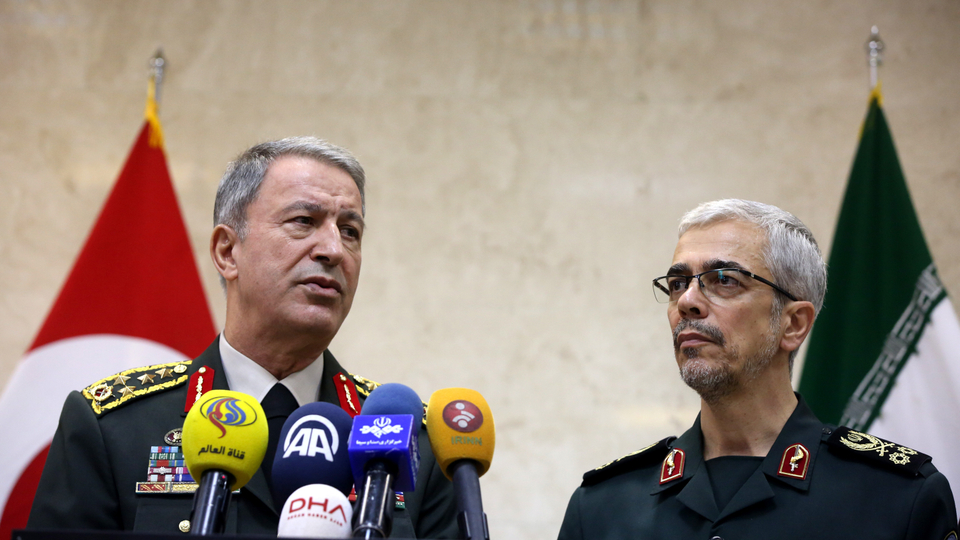




 As of April 27, additional 48 bodies were unearthed in the liberated lands of Azerbaijan, bringing the total count of discovered remains to over 600.
As of April 27, additional 48 bodies were unearthed in the liberated lands of Azerbaijan, bringing the total count of discovered remains to over 600.
 U.S. Secretary of State Antony Blinken reiterated Washington’s unwavering support for the ongoing peace process between Azerbaijan and Armenia in a...
U.S. Secretary of State Antony Blinken reiterated Washington’s unwavering support for the ongoing peace process between Azerbaijan and Armenia in a...
 Kyrgyzstan has joined the extensive reconstruction efforts in the Karabakh region of Azerbaijan, after a series of mega initiatives were launched b...
Kyrgyzstan has joined the extensive reconstruction efforts in the Karabakh region of Azerbaijan, after a series of mega initiatives were launched b...
 Turkmen President Serdar Berdimuhamedow and British Secretary of State for Foreign Affairs, Commonwealth Affairs, and Development David Cameron dis...
Turkmen President Serdar Berdimuhamedow and British Secretary of State for Foreign Affairs, Commonwealth Affairs, and Development David Cameron dis...
 A draft resolution aimed at preventing the development and deployment of weapons of mass destruction (WMDs) in outer space, co-sponsored by Japan a...
A draft resolution aimed at preventing the development and deployment of weapons of mass destruction (WMDs) in outer space, co-sponsored by Japan a...
 Russia and Ukraine have engaged in direct negotiations facilitated by Qatar to address the exchange of children affected by the ongoing conflict.
Russia and Ukraine have engaged in direct negotiations facilitated by Qatar to address the exchange of children affected by the ongoing conflict.
